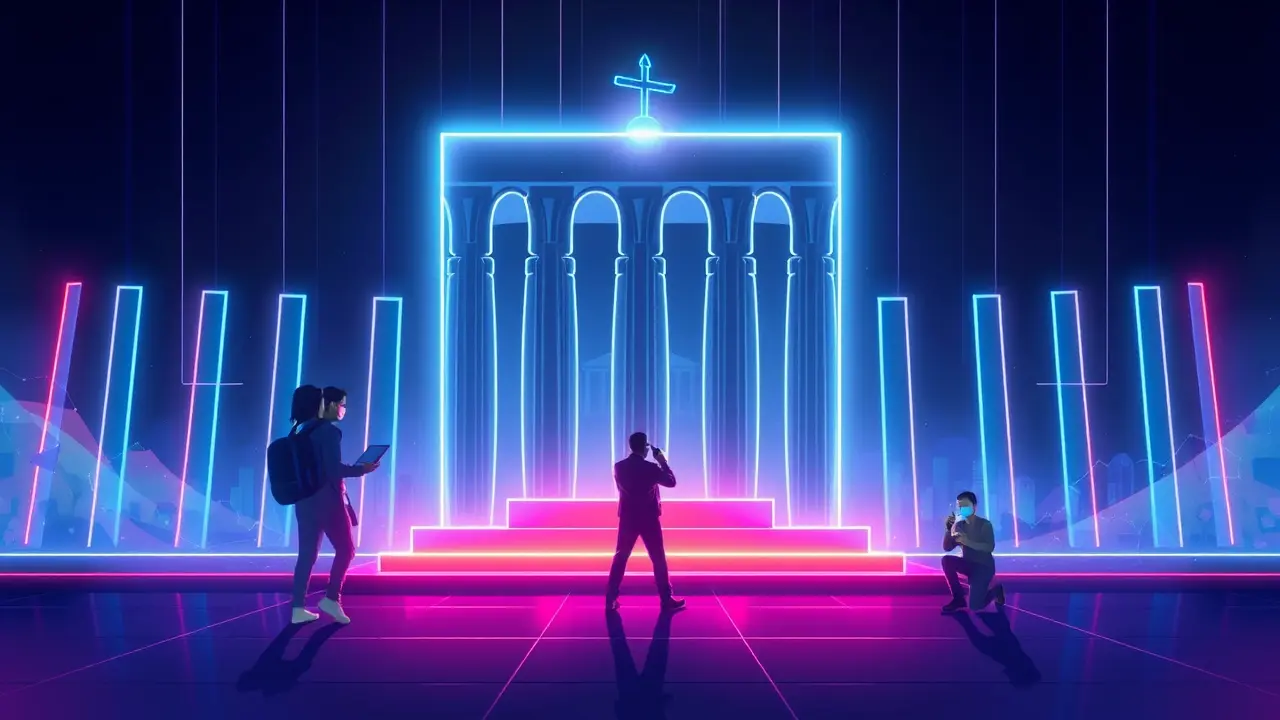ICC Disqualifies Prosecutor in Duterte Philippines Case
In a procedural shockwave that reverberated through the corridors of international justice, the International Criminal Court has formally disqualified the lead prosecutor in the politically incendiary case against former Philippine President Rodrigo Duterte, a development that a court spokesperson was quick to frame as a mere administrative recalibration, insisting the case will proceed unabated under the stewardship of a deputy prosecutor. This is far more than a simple personnel change; it is a critical stress test for an institution perpetually navigating the treacherous intersection of law and realpolitik.The Duterte case itself is a monumental undertaking, centering on the brutal 'war on drugs' that, according to human rights organizations and UN reports, left tens of thousands of Filipinos dead in a campaign marked by extrajudicial killings and a state-sanctioned rhetoric of violence. For the ICC, which operates on the principle of complementarity—stepping in only when national courts are unwilling or unable to prosecute—the Philippines represents a quintessential failure of domestic justice.Duterte’s government not only withdrew the country from the Rome Statute in 2019 in a blatant attempt to shield itself from accountability, but its own internal investigations have been widely condemned as theatrical shams, designed to obfuscate rather than uncover truth. The disqualification of the prosecutor, therefore, introduces a new layer of strategic complexity.While the official line is one of uninterrupted continuity, seasoned observers of The Hague understand that such mid-stream changes carry profound operational risk. A new lead, even a deputy stepping up, must re-immerse themselves in a labyrinthine evidence file, rebuild the nuanced prosecutorial strategy, and establish the same rhythm with the bench—all while the defense seizes the opportunity to cry foul and sow procedural discord.This is where scenario planning becomes essential. We must model the potential outcomes: the bullish scenario sees a reinvigorated prosecution, perhaps with a fresh perspective that sharpens its arguments, leading to a swift and decisive pre-trial confirmation of charges.The bearish scenario, however, is a legal quagmire. The defense will undoubtedly exploit this discontinuity, filing motions challenging the consistency of the prosecution's case, potentially delaying proceedings by months or even years, and eroding the fragile momentum that has been built.This delay is a strategic victory for the accused, allowing memories to fade, witnesses to become vulnerable, and political landscapes to shift. Furthermore, we must consider the geopolitical fallout.The Duterte administration cultivated a distinct brand of populist defiance against what it labeled 'Western imperialism,' and this ICC action, however procedurally justified, will be weaponized by his allies and successors to fuel that very narrative. How will key regional powers like China, which has courted Manila assiduously, respond? Will they use this as a wedge issue within ASEAN, arguing it represents another example of external interference? The ICC’s credibility, already strained by perceptions of a focus on African leaders, is on the line.A successful prosecution would mark a historic precedent, demonstrating that even a leader who withdraws his nation from the court cannot escape its long arm for crimes allegedly committed while a member. A failure, whether through acquittal or a case collapsing under its own procedural weight, would be catastrophic, emboldening other strongmen to flout international norms.The spokesperson’s calm assurance is the public face of what is undoubtedly a period of intense, behind-the-scenes recalculation in The Hague. Every affidavit, every crime scene photo, every chain of custody document is now being scrutinized under a new lens. The path to justice for the victims of the Philippine drug war has never been steeper or more fraught with uncertainty, and the world is watching to see if the machinery of international law can withstand the pressure.
Latest News
The charts are whispering what the true believers have felt in their bones for weeks—Dogecoin is carving out a bottom.
17 hours ago5 comments
The Institute for Fiscal Studies has thrown a stark warning onto Rachel Reeves's desk, urging the Chancellor to confront a potential £22 billion shortfall in
17 hours ago3 comments
Alright, let's break down this absolute heater of a performance from the Chicago Blackhawks, because if you missed this one, you missed a party.
17 hours ago5 comments
The ice was hot last night in the NHL, folks, serving up a slate of games that felt less like a regular season Tuesday and more like a playoff preview with a
18 hours ago3 comments
The XRP chart is painting a tantalizing picture for those with the stomach to withstand the relentless pressure from crypto's leviathans.
18 hours ago4 comments
It’s in the small shifts, the quiet recalibrations of a Thursday morning, where the most meaningful change often takes root.
18 hours ago4 comments
In a move that sent ripples of quiet confidence through the crypto ecosystem, blockchain intelligence firms tracked a monumental treasury allocation from
18 hours ago4 comments
In a move that would have drawn a nod of approval from historical figures like Churchill, who understood the delicate balance of power within democratic
18 hours ago2 comments
MA
Mark Wilson123k6 hours ago
not sure this changes much tbh, the case was always gonna be a long shot smh
0
JA
Jamie Larson123k11 hours ago
this feels like a major setback tbh, idk if they can just pick up the pace after switching leads smh
0
MA
Maya Torres123k15 hours ago
smh feels like this just gives them more time to drag this out forever justice moves so slow it's frustrating
0
JA
Jamie Wilson123k20 hours ago
idk this feels like a mess waiting to happen, are we sure this is gonna hold up in court smh
0
CH
Chloe Bennett123k1 day ago
it's so heartbreaking to think of all the lives lost, the sheer weight of it all i hope this somehow brings a flicker of light and peace to the families waiting for an answer
0
JA
Jamie Larson123k1 day ago
oh great, the legal drama gets a new lead actor mid-season 😂 tbh idk if this is a plot twist or just more bureaucracy
0
